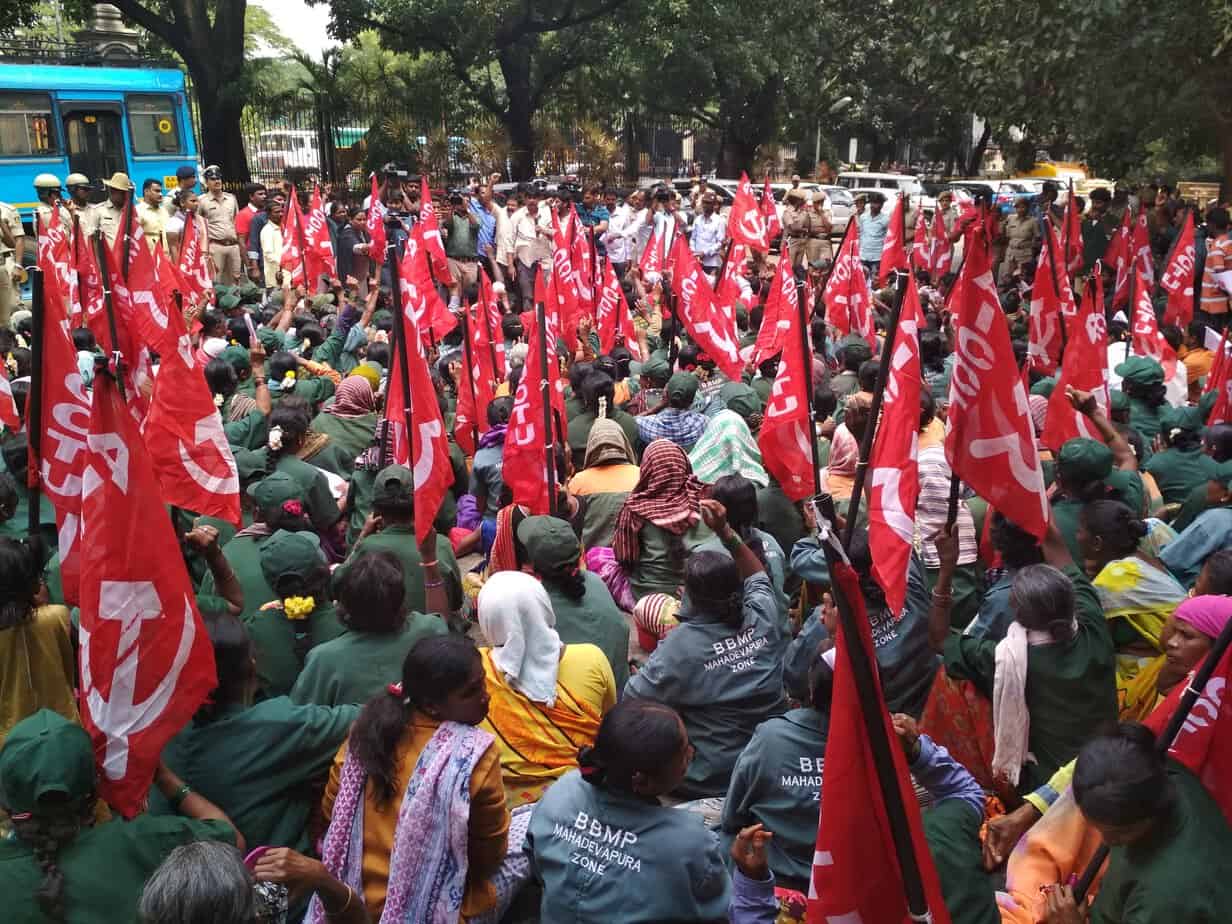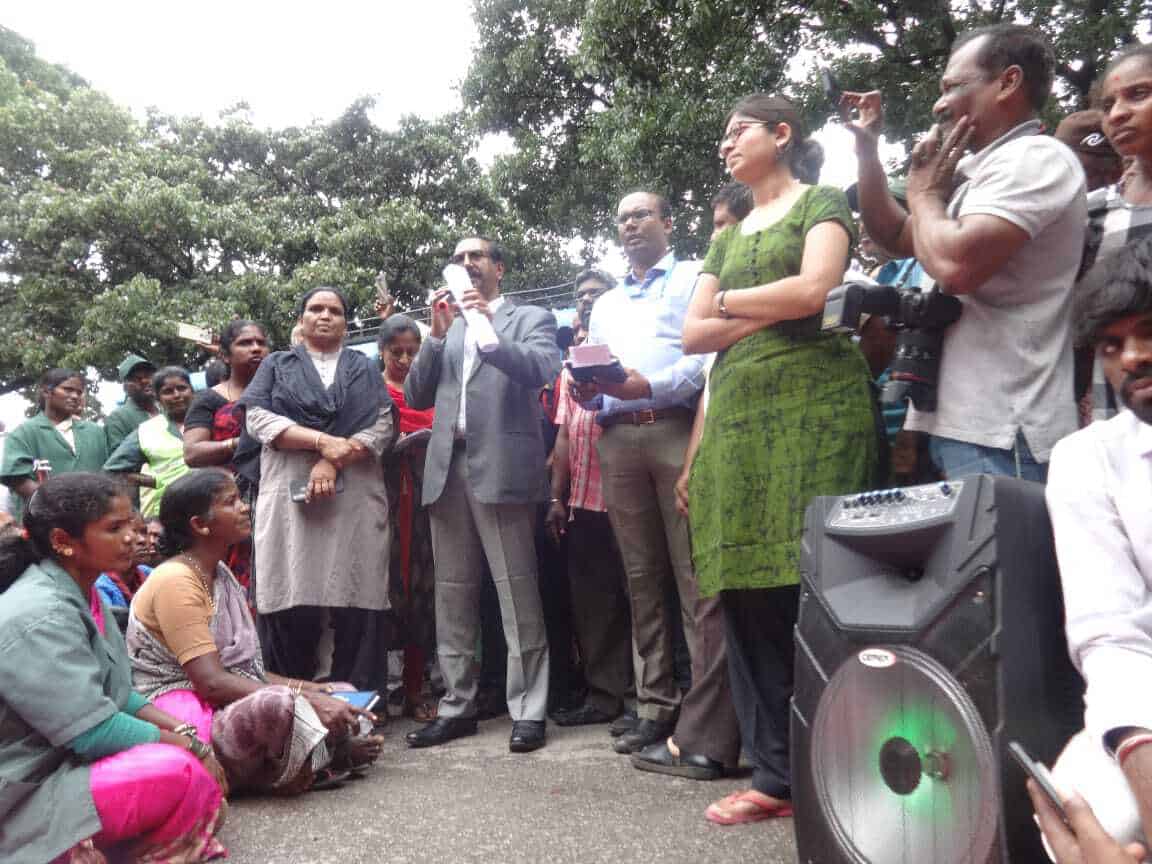In a bid to regularise the posts of 4000 pourakarmikas in the city, the Bruhat Bengaluru Mahanagara Palike (BBMP) called for online applications in a circular dated 27th August. There are 18,000 pourakarmikas in the city who have been receiving their salaries under the direct payment system since January 2018, and the state government had earlier promised to regularise all of them.
The pourakarmikas therefore are frustrated that only 4000 workers may be regularised instead of all 18,000. In this context, the BBMP Pourakarmikara Sangha, affiliated with the All India Central Council of Trade Unions (AICCTU), organised a protest on the premises of the BBMP Head Office today.
Thousands of workers from all eight BBMP zones gathered in protest this morning at 11 am. First, the workers demanded that all 18,000 workers under the direct payment system be regularised, instead of a mere 4000, since this was the assurance made by the Karnataka Government in June 2017 when the contract system was abolished in solid waste management across the state.

Workers protested outside the BBMP office today. Pic: BBMP Powrkarmikara Sangha
The protestors questioned why the government had consistently gone back on its promises. They said there was fear that genuine workers were being excluded from the regularisation process. This fear also stems from government’s criteria for regularisation; applications have been invited only from workers who are below 45 years of age, and can read and write Kannada.
The state government has excluded more than 70 percent of the workforce from being eligible for regularisation by putting the criteria of age limit of 45 years. This criteria would exclude workers who have served 25 to 30 years under the contract system, and thus are above 45 years of age. Secondly, the applicant worker is required to furnish an affidavit swearing that she/he can read and write in Kannada.
While the Union recognizes the importance of knowing the state language, it becomes a hindrance when illiterate workers are asked to furnish educational qualifications. This ensures that the entire workforce is exempted from being regularised.
Moreover, the workers are shocked that they not only have to submit applications online, but also make fee payment towards the application through credit/debit cards or net-banking! The workers feel that this paves the way for middlemen to fleece them.
The workers also expressed several concerns regarding the documents required for making an application, among other processes. Pourakarmikas already possess biometric numbers, and have ESI and PF benefits extended to them by the BBMP. This shows that they are workers employed by the BBMP, and that they need not furnish any further documents to prove that they are, in fact, pourakarmikas in the city.

BBMP Commissioner Anil Kumar B H, along with Special Commissioner (SWM) Randeep Dev, who addressed the workers gathered outside the BBMP Office. Pic: BBMP Powrkarmikara Sangha
BBMP Commissioner Anil Kumar B H, along with Special Commissioner (SWM) Randeep Dev, assured the workers that they would seek permission from the Karnataka Government to increase the age limit from 45 years, and that exemptions would be made for educational qualification.
Workers requested halting the regularisation process until there was clarity with respect to their concerns. The Commissioner conceded to the demand. He assured that the application process would be put on hold until the permission to regularise all 18,000 workers and to increase the age limit was obtained from the state government.
He also requested the workers to not pay any middlemen or agents, including their supervisors, if they offered to make online applications on their behalf. He said that only JHIs and SWM AEEs would be authorised to help workers in making applications, through help desks in each assembly constituency.
[This article is based on a press release from BBMP Powrkarmikara Sangha]